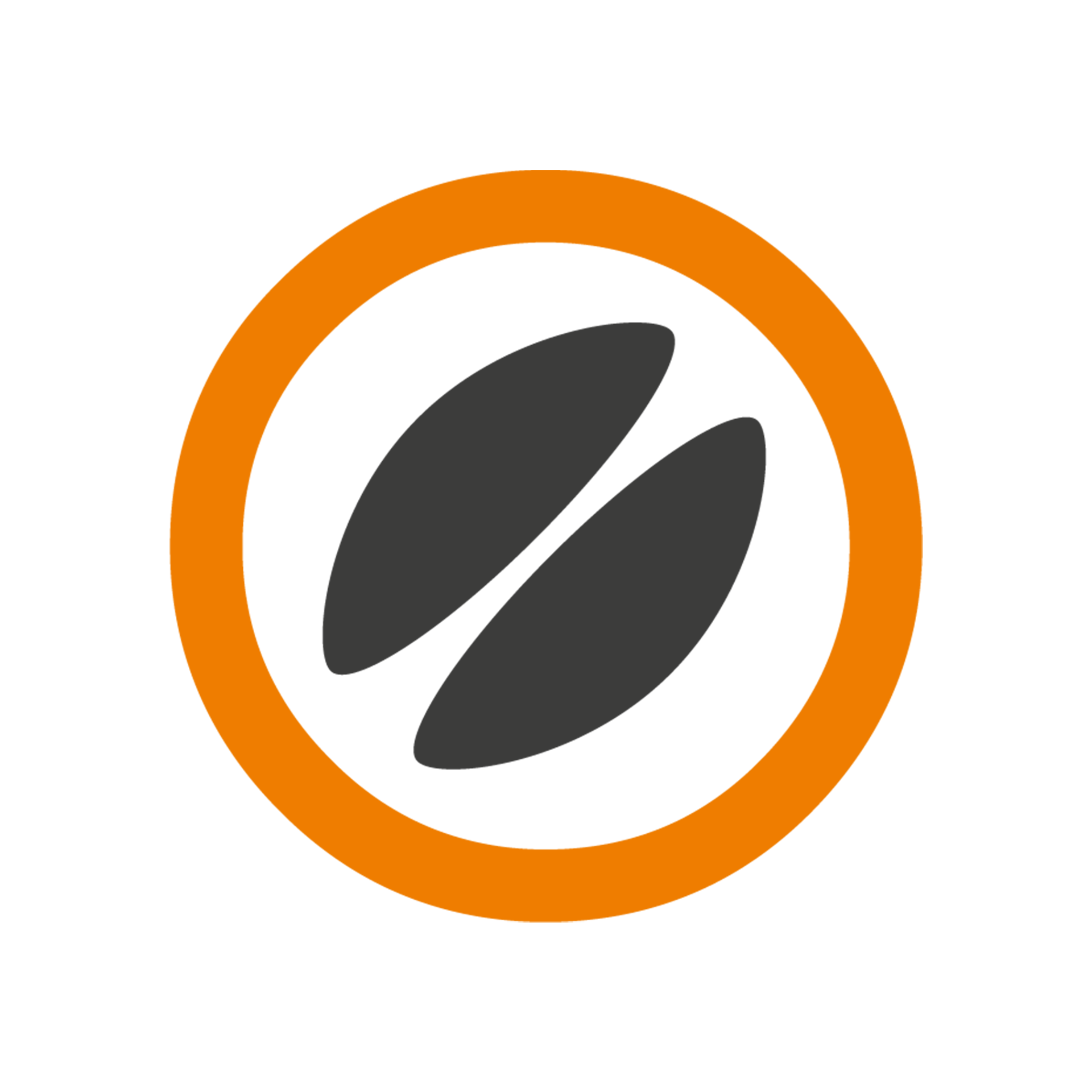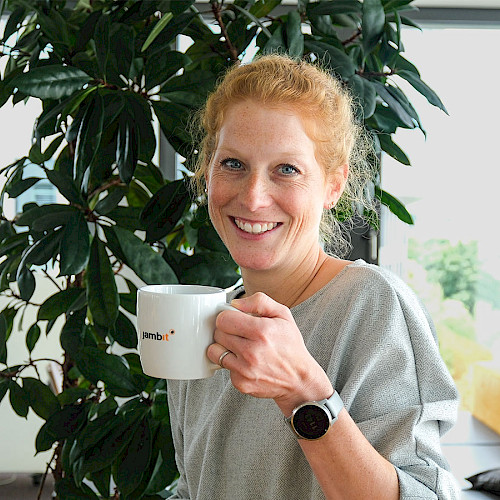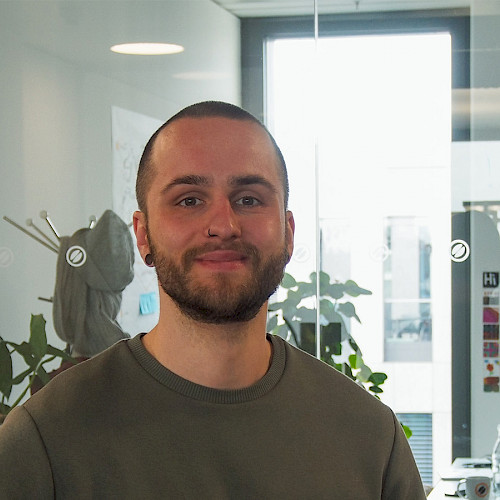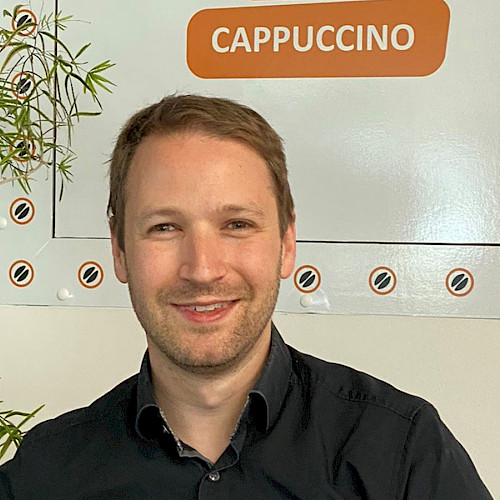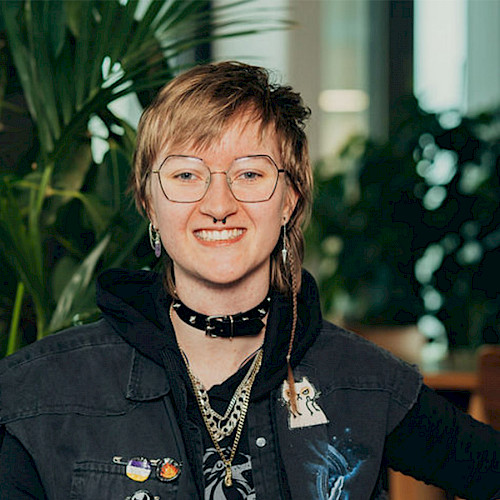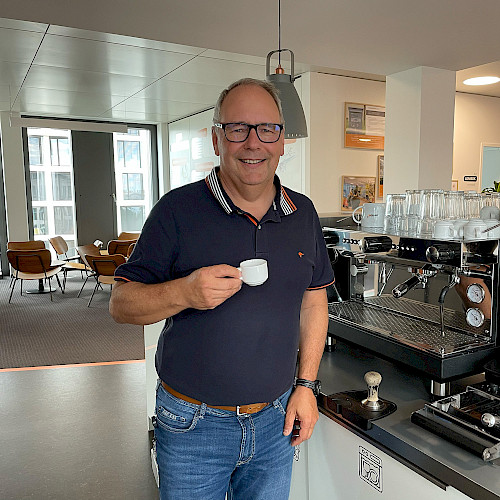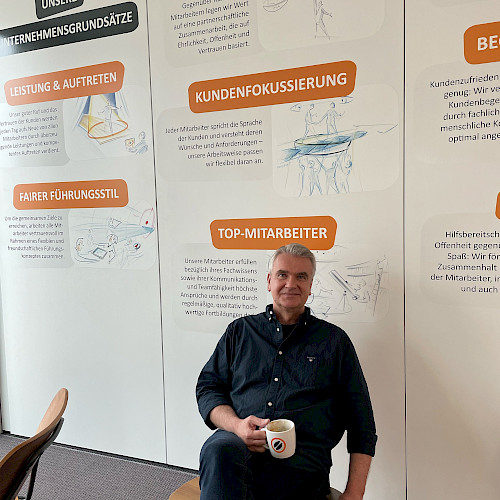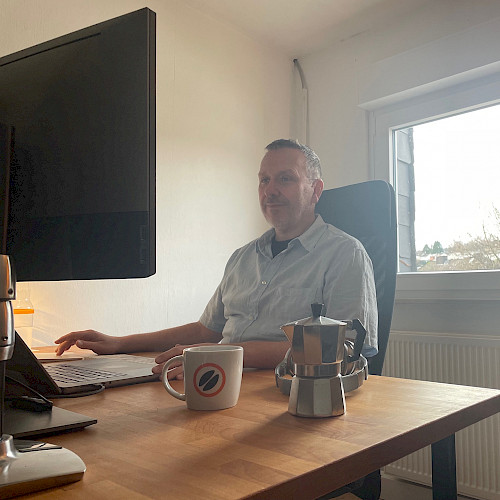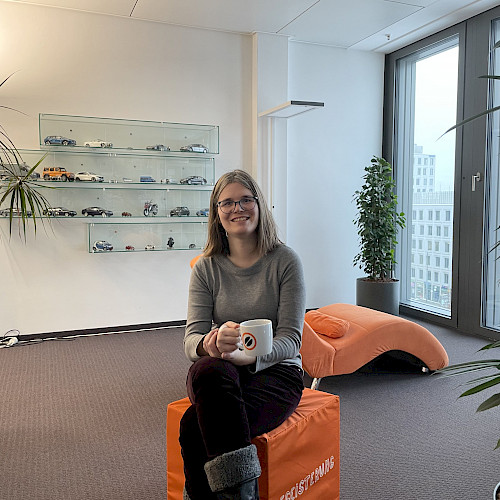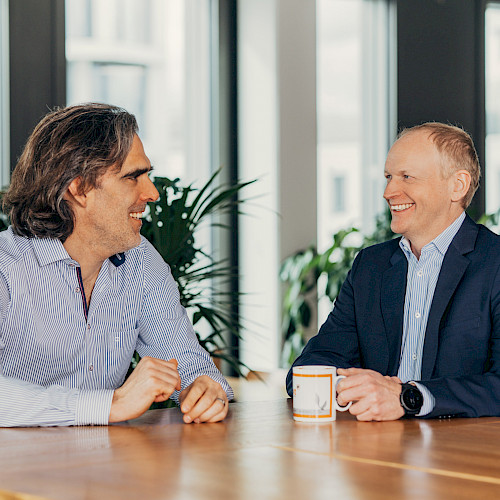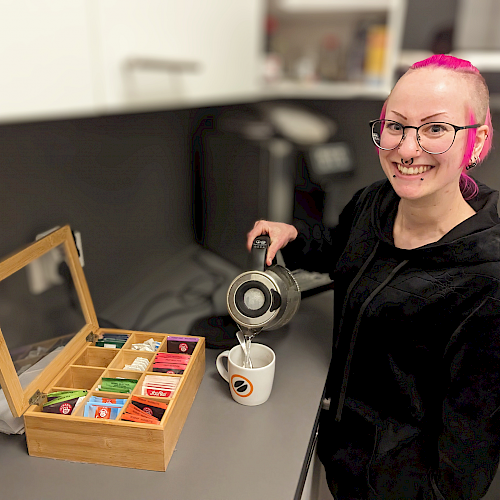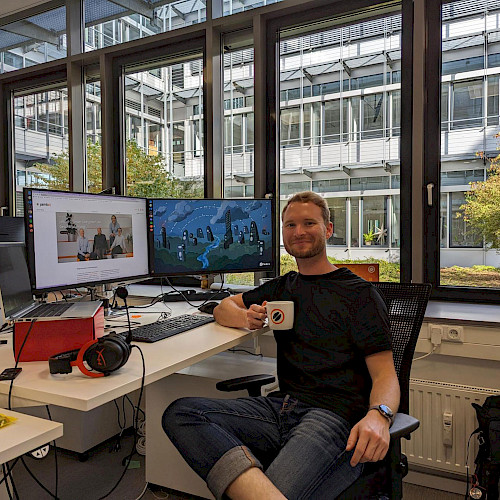
1. How do you drink your coffee?
With a little bit of coffee and lots of milk foam.
2. What do you do at jambit?
I'm a software developer. I did a dual study program here and finished at the end of January. I've been working full-time since February. I started at FAZ, then at BSH, then at Mer and now I'm at a medical technology startup. 4 years here, 4 projects.
I worked as a developer on the Mer project for a relatively long time. I'm currently working on a project for a startup in the medical industry, where I analyze medical data and work in the field of data science.
3. What was your Mer project about?
I wrote my bachelor's thesis at Mer. It has been my biggest project until now. Mer makes charging infrastructure solutions, so they offer a charging network for their clients. They have some of their own stations, but that's a relatively small part. They integrate stations from other providers, such as Tesla or E.ON. I integrated a new provider. I connected the interface so that all the data from the stations is in our backend. Then clients could charge via it.
4. You've been at Industry & Energy for a while now. How do you like being in the department?
It's a rather small department at jambit, so the atmosphere is very personal, which I really like. My heads of department are also very cool, helpful, and relaxed. In terms of projects, I think the department is very diverse. In the "Industry" area, I was involved in BSH's foodfittery project. I think that's an exciting project.
The "Energy" area is very recent. Especially when it's about green energy, like Mer, it's very interesting for me.
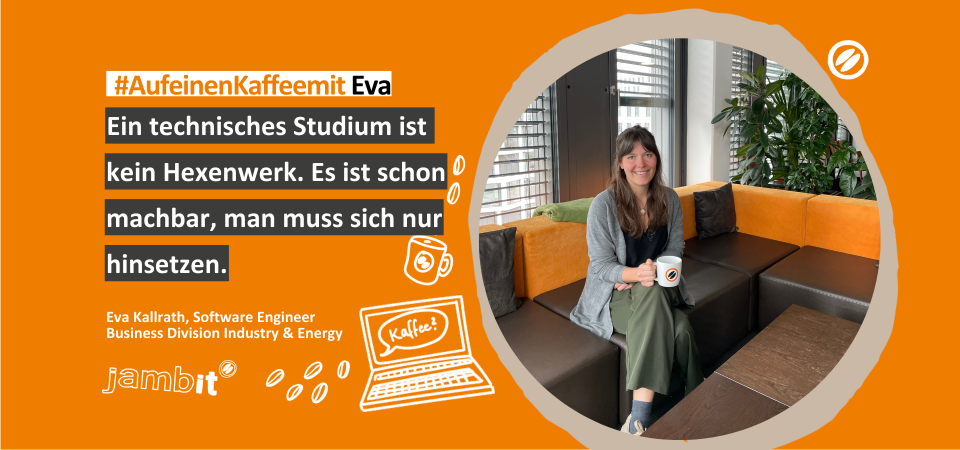
5. Could you combine work and study well during your dual studies?
It went quite well. Especially in computer science, I think it's great when you can put theory directly into practice. For example, working at jambit helped me a lot for my software development exams. It was easier for me because I had already developed in real projects here. Which was always uncool when you had a really stressful exam period and everyone else was off. We had to work full-time again on Monday. (laughs)
Overall, I learned a lot and could try out a lot. I could make a lot of mistakes in puppy protection.
6. Did you make a conscious decision to study business informatics?
Yes. The way I grew up, technical studies were actually more for boys. You had to be technically talented for that. I thought that's not me. But basically, you just have to take your time and look into it. And then it works. Before, I wasn't sure if it suited me and if I could do it. In the end, it was the right decision.
7. What do you do in your free time?
I like being outdoors. I go hiking, mountain biking and ski touring. And I spend a lot of time in the garden. I really wanted to study landscape architecture. Something completely different, because I really enjoyed doing things in the garden or thinking about garden architecture. Now, I enjoy it as a hobby, and I think it's a good thing that I didn't do it as a career.
8. Which advice would you give your former self?
That a technical degree isn’t rocket science. It can be done; you just have to sit down and do something about it. But then you'll get there!

